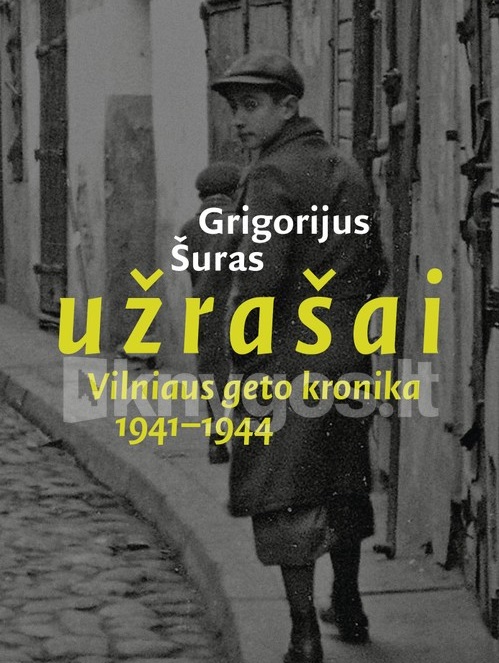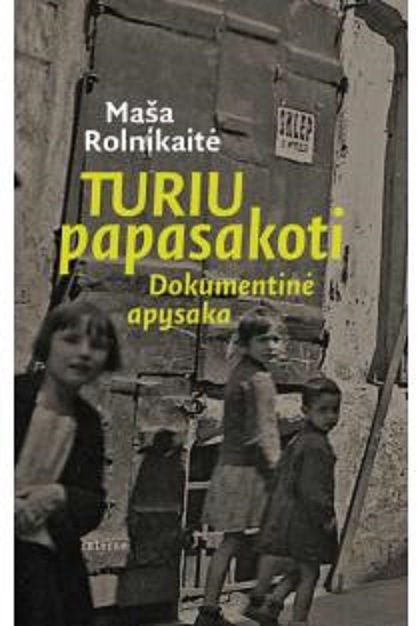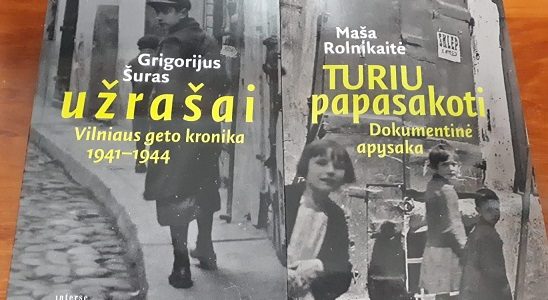by Eugenijus Bunka
When you speak with those who aren’t there, it’s called Memory. Therefore Maša Rolnikaitė’s book “I Must Tell” [Turiu papasakoti] and Grigoriy Shur’s “Entries: Chronicle of the Vilnius Ghetto, 1941-1944” [Užrašai: Vilniaus geto kronika 1941-1944 m.] are books of Memory. And in memory of those whose lives were cut short, as they began or half-way through, who were consumed in the flames of the Holocaust.
Not one of the people mentioned in these books died a natural death. That inherent human right was taken from them.
They died without notice in World War II, but Maša and Grigoriy who had stood with them spoke loudly.
If a Red Army soldier hadn’t found Maša frozen, lying in a snow drift on the final death march from the Stutthof concentration camp, this book would not exist. The diary she kept hidden on her person would have been buried with her. But she survived and now in eighteen languages her story tells the world what humanity may never allow to happen again.
Grigoriy died, but Vilnius ghetto rescuer Ona Šimaitė preserved his manuscript. He also introduces and presents to us those who are only revived in memory.
When you read these books, you speak with the millions of people murdered throughout Europe.
That means you have Memory.
The Lithuanian Jewish Community, the Jakov Bunka Welfare and Support Fund and the Vilnius Jerusalem of Lithuania Jewish Community are donating new publications in Lithuanian of Maša Rolnikaitė’s “Turiu papasakoti” and Grigoriy Shur’s “Užrašai: Vilniaus geto kronika 1941-1944 m.” to all public libraries and educational institutions in Lithuania.




